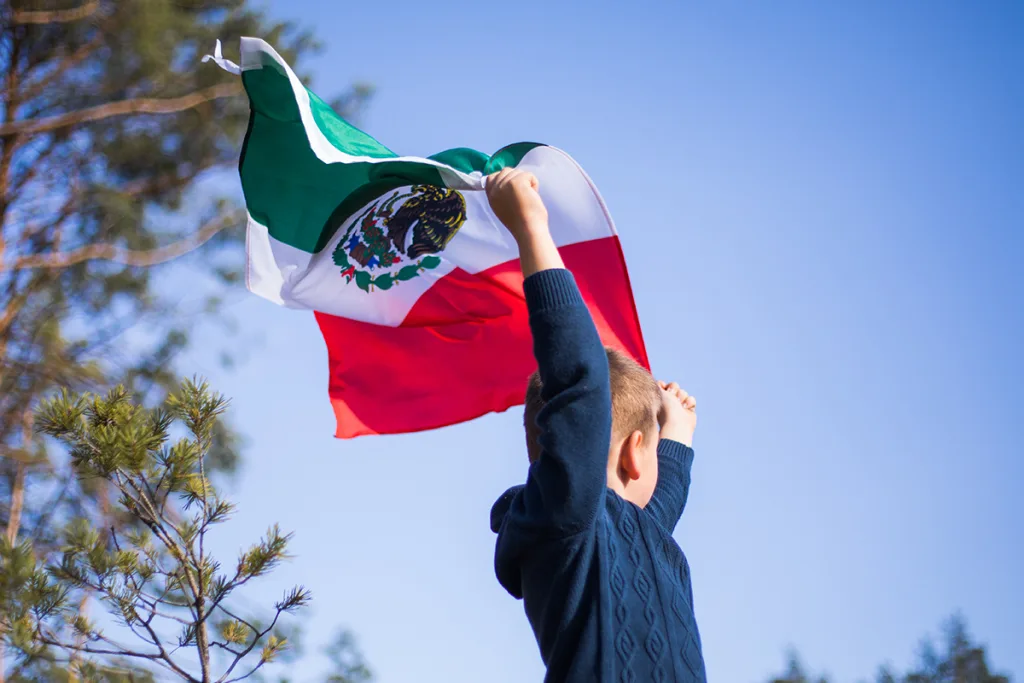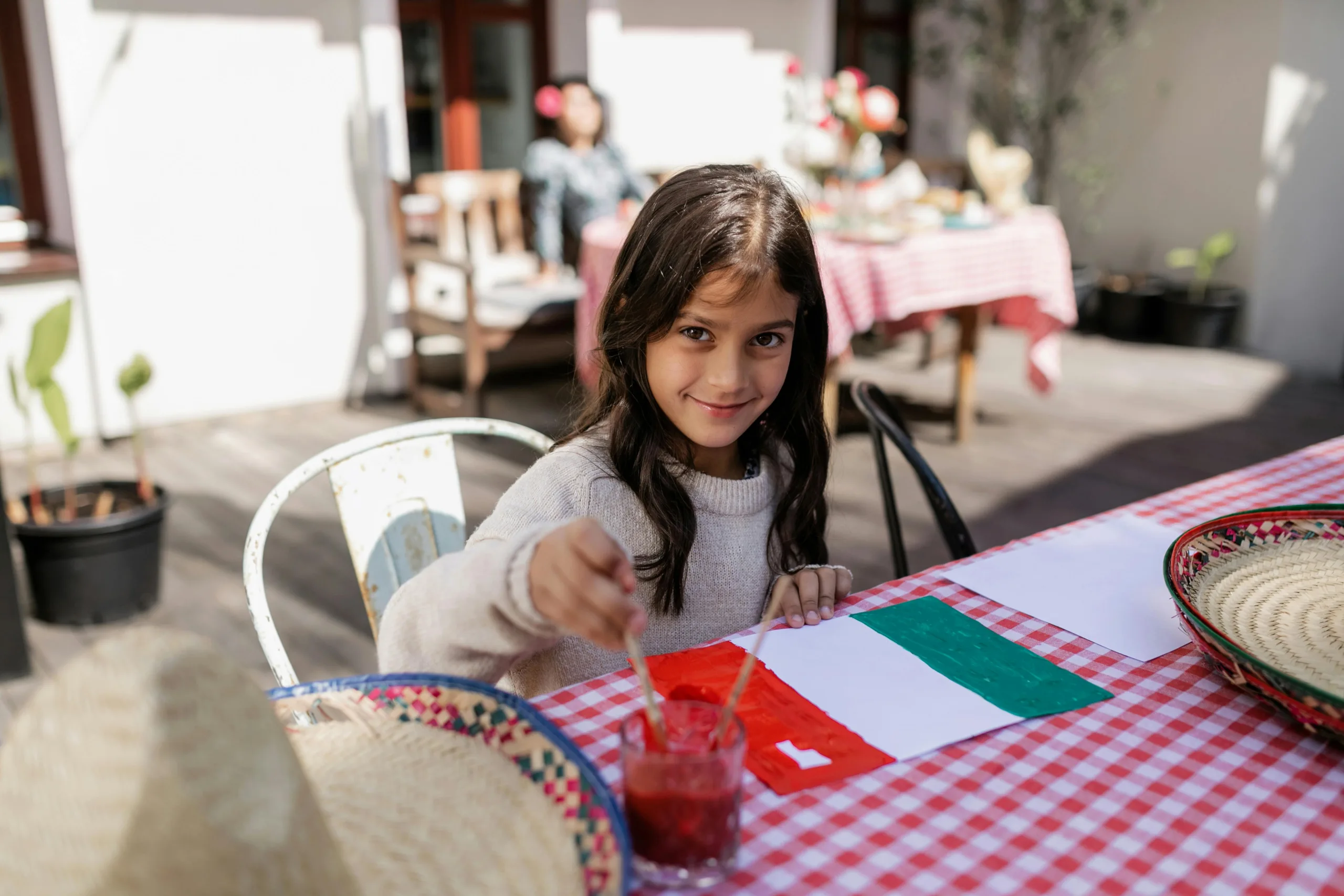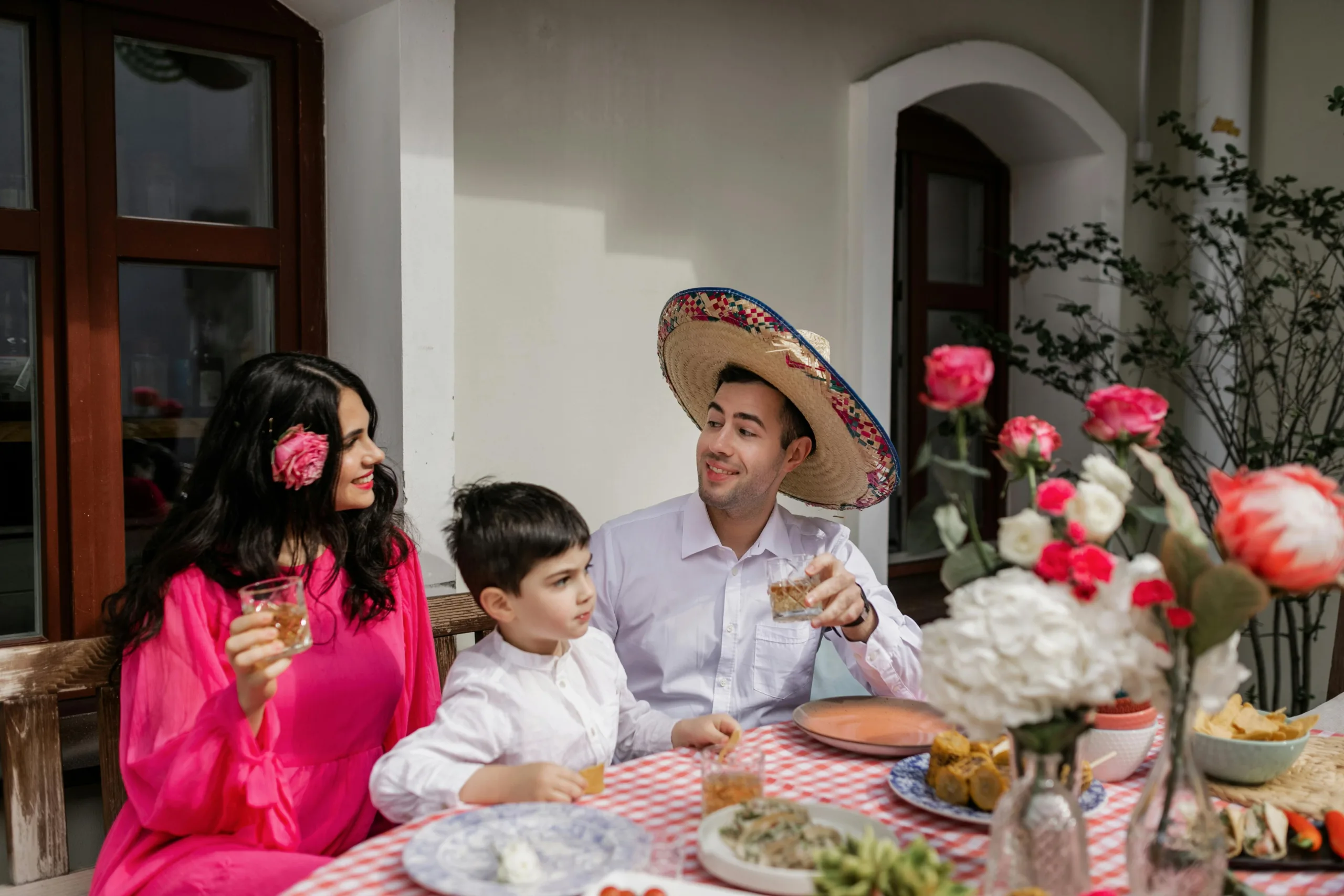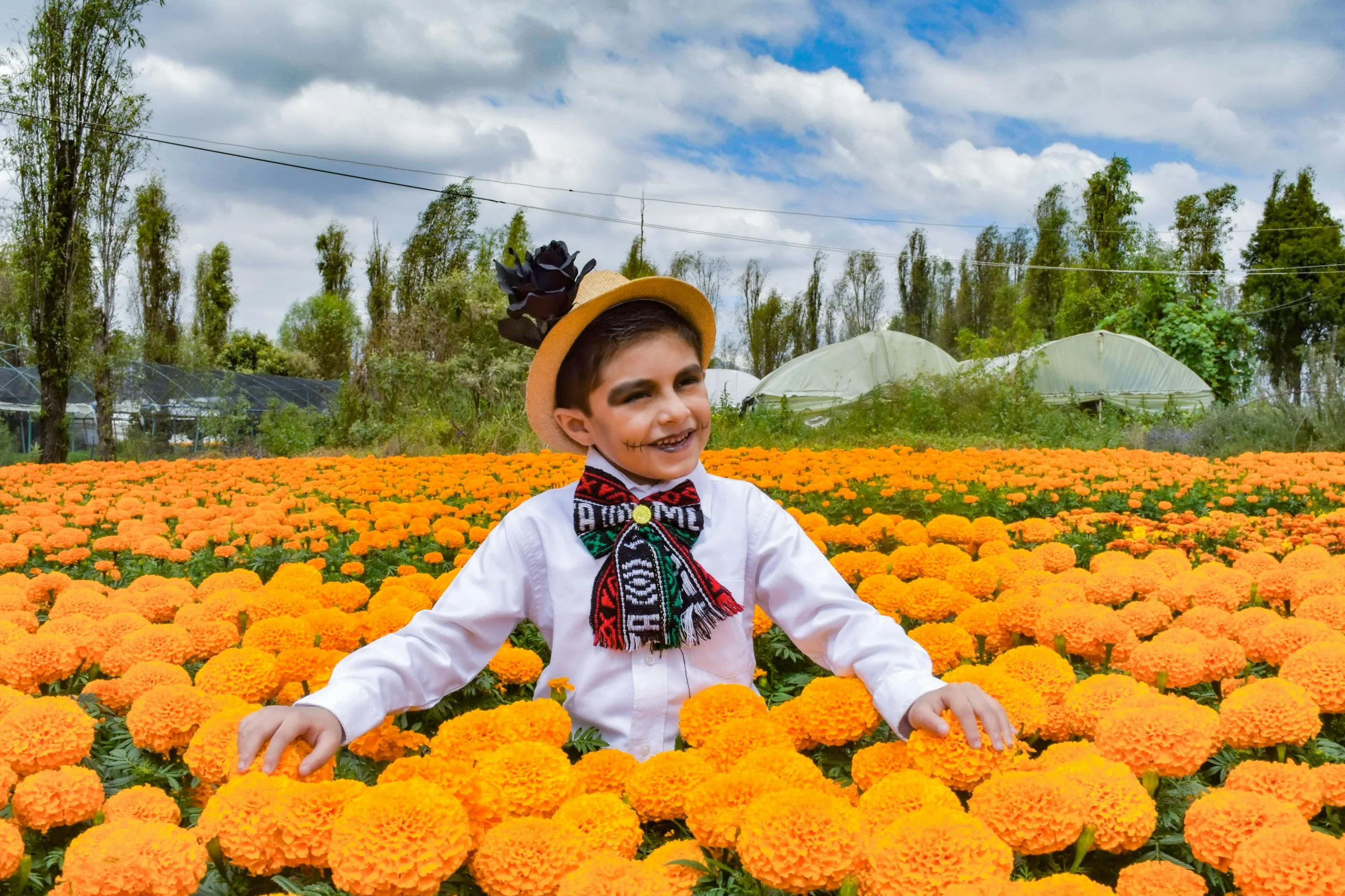Mexico is known for its vibrant traditions, deep-rooted history, and festive spirit. Throughout the year, families come together to honor important holidays in Mexico, blending Indigenous customs with Spanish and modern influences.
If your Au Pair is from Mexico, celebrating these special days is a great way to connect as a family while giving your children a firsthand look at Mexico holidays and celebrations. Whether it’s trying new foods, learning about historical figures, or participating in meaningful traditions, these holidays offer a chance to experience cultural exchange right at home.
Here are some of the most important Mexican holidays and ways you can celebrate them together!
January: Welcoming the New Year with Tradition
January marks the beginning of a new year, filled with hope, family gatherings, and special customs that set the tone for the months ahead.
- Año Nuevo (New Year’s Day) – January 1
In Mexico, Año Nuevo (New Year’s) is a festive celebration typically spent with family and friends. People gather for a homemade late-night meal, featuring traditional dishes like tamales and bacalao. Then at midnight, it’s common to eat 12 grapes, one for each chime of the clock, while making wishes for the year ahead.
- How to celebrate at home: Try the 12-grape tradition, where each grape represents a wish for the new year. Cook tamales with your Au Pair or toast with a warm ponche (fruit punch).
- Día de los Reyes Magos (Three Kings’ Day) – January 6
A day when children receive small gifts from the Three Wise Men, and families share Rosca de Reyes, a ring-shaped sweet bread.
- How to celebrate at home: Enjoy Rosca de Reyes together. If someone finds the hidden figurine inside, they’ll host a tamale dinner on February 2 (Día de la Candelaria).
February: Community, Faith, and Patriotism
February is full of meaningful traditions in Mexico that brings people closer to their roots. Here are the most widely-celebrated Mexican holidays this month:
- Día de la Candelaria (Candlemas) – February 2
February 2nd is a colorful and festive day in Mexico! People who found the figurine in the “rosca de reyes” on January 6th gather with friends and loved ones, often serving tamales and atole. People also attend church services, where they bring candles and baby Jesus statues to be blessed.
- How to celebrate at home: Make tamales and atole (a traditional hot drink) with your Au Pair.
- Día de la Bandera (Flag Day) – February 24
Every February 24th, Mexicans celebrate the national flag and its symbolism. Schools and communities celebrate with music, art, and cultural activities.
- How to celebrate at home: Learn about the meaning behind the flag’s colors and create a simple flag-themed craft with kids.
March: Honoring Leaders and History
Though March doesn’t have as many festivities, it’s still a time to reflect on Mexico’s rich political history and the leaders who shaped the nation.
- Natalicio de Benito Juárez (Benito Juárez’s Birthday) – March 21
The birth of former President Benito Juárez (March 21) is an important day in Mexico and is recognized as a national holiday. Schools, government offices, and businesses all close while public celebrations like fireworks shows, parades, and musical performances are held across the country.
- How to celebrate at home: Read a kid-friendly story about Benito Juárez’s life and impact on Mexico.
April: Celebrating Heroes and Children
April is the final stretch of Mexico’s dry season, making it the perfect time to soak up the sunshine before the rains return. This month also brings a few special holidays, each offering a unique way to connect with Mexican culture.
- Heroica Defensa de Veracruz (Heroic Defense of Veracruz) – April 21
Every April 21st, Mexicans celebrate the bravery of the people who defended the city of Veracruz from a U.S. military attack in 1914. There are ceremonies, parades, and speeches held across the country — but especially in the city of Veracruz.
- How to celebrate at home: Talk with your children about courage and standing up for what’s right. Read a story or watch a short video about real-life heroes in history.
- Día Del Niño (Children’s Day) – April 30
April 30th is Children’s Day in Mexico, which is a time to acknowledge the importance of children’s happiness, rights, and well-being. On this day, families and schools host events, games, and activities for kids. They may also give children small gifts, like candy, toys, or books.
- How to celebrate at home: Plan a fun game night, a movie marathon, or a special treat for your children with your Au Pair.
May: Freedom, Family, and Appreciation
May brings a wave of celebrations in Mexico, from Cinco de Mayo to Mother’s Day! It’s a month full of chances to enjoy quality time and experience cultural activities. Check out these celebrations you can enjoy with your Au Pair:
- Día Del Trabajo (Labor Day) – May 1
On May 1, Mexicans show appreciation for all workers and the effort they put into their jobs. Many businesses give their employees the day off, and some companies may offer special bonuses or benefits as a way of showing respect. It’s also a day where labor unions or unsatisfied employees may gather to demand better working conditions, rights, and fair treatment.
- How to celebrate at home: Encourage kids to make thank-you cards for hardworking family members, Au Pairs, or community helpers.
- Cinco de Mayo – May 5
Held on May 5 each year, Cinco de Mayo celebrates the victory of the Mexican army over the French in the Battle of Puebla in 1862. People enjoy parades, reenactments, and festivals with music, dancing, and delicious food like mole poblano.
- How to celebrate at home: Cook a traditional Pueblan dish like mole poblano together.
- Día de Las Madres (Mother’s Day) – May 10
Unlike in America where Mother’s Day falls on the second Sunday of May, Dia de Las Madres always falls on May 10. Children often wake up early to bring breakfast in bed or give their moms flowers, chocolates, or other gifts. Then it’s common for families to gather for a special meal, often at home or in a restaurant, to spend quality time together.
- How to celebrate at home: Encourage kids to create a handmade card or breakfast for a mother in their life.
- Día Del Maestro (Teacher’s Day) – May 15
On May 15, parents, students, and schools show appreciation for the important role teachers play in shaping lives and education. It’s customary for students to give flowers, cards, or small gifts, and schools often host celebrations with performances, speeches, and parties. Teachers may also get a special lunch.
- How to celebrate at home: Have your kids write a thank-you note or create a small handmade gift for a teacher or mentor they appreciate. If school is in session, help them bring a small treat or card to their teacher.
June: Fathers and Maritime Heritage
While June isn’t packed with big celebrations, there are a couple of important dates that could be special to your Au Pair — especially if they have Navy family members or are missing their dad while abroad. Let’s take a look at the days to remember:
- Día de la Marina (National Maritime Day) – June 1
Mexicans reserve June 1st as a time to recognize the contributions of Mexico’s navy and maritime workers. There are often celebrations near the water, including boat parades and public displays of naval equipment.
- How to celebrate at home: Take a family trip to a body of water or watch a kid-friendly documentary about ocean conservation and sailors.
- Día Del Padre (Father’s Day) – Third Sunday of June
Celebrated on the third Sunday of June, just like in many other countries, Dia Del Padre honors the love, care, and hard work Dads provide. Families spend time together, often with a special meal at home or out. Kids give their dads gifts, cards, or handmade presents to say thank you.
- How to celebrate at home: Have kids write a heartfelt letter or create a “Dad’s Day” coupon book.
July: A Celebration of Culture & Community
While July doesn’t have many national holidays, it is home to one of Mexico’s most vibrant cultural festivals—a celebration of Indigenous heritage, music, and dance.
- Guelaguetza Festival – Last Two Mondays of July
Celebrated in Oaxaca, this festival is a beautiful display of Indigenous traditions, featuring colorful dances, regional clothing, and traditional foods from across the state. It highlights community, generosity, and the sharing of culture—values that are central to Mexican identity.
- How to celebrate at home: Watch a Guelaguetza dance performance online and try making a traditional Oaxacan dish like tlayudas (crispy tortillas with beans, cheese, and meat) or hot chocolate with cinnamon and spices.
September: National Pride and Independence
September kicks off a new rhythm in Mexico — school’s back in session, the heat’s finally easing up, and life starts to get busier. But the most exciting day of all? Independence Day! September is known as “El Mes Patrio” (The Patriotic Month) in Mexico, as it marks the country’s independence.
- Día de los Niños Héroes (Boy Heroes Anniversary) – September 13
A day remembering young cadets who bravely defended Chapultepec Castle in 1847.
- How to celebrate at home: Share a kid-friendly history lesson about bravery and ask kids to write or draw about a hero they admire.
- Día de la Independencia (Independence Day) – September 16
Mexico’s Independence Day falls on September 16th and celebrates the start of the struggle for independence from Spain in 1810. The celebrations begin with the Grito de Dolores, a reenactment of the famous cry for freedom. Then, celebrations begin, which include parades, fireworks, music, and lots of dancing.
- How to celebrate at home: Watch a virtual Grito de Dolores (Independence Cry), enjoy Mexican music, and cook a traditional dish.
October: Honoring Heritage
October isn’t necessarily packed with festivities in Mexico, but one holiday truly stands out. It honors the cultures and traditions that merged to create Latin America — and that’s a pretty major piece of history. Here’s what you need to know:
- Día de la Raza (Day of the Race):
Held on October 12th, Día de la Raza honors the cultural mix of Mexico and Latin America, marking the meeting of Indigenous people and Europeans in 1492. People get together to share music, dance, and traditional food, in recognition of Mexico’s rich heritage and diversity.
- How to celebrate at home: Discuss your own family’s heritage and share traditions with your children.
November: Remembering the Past
There are a couple of notable Mexican holidays in November, both with their own charm — but if there’s one to mark on your calendar, it’s Día de los Muertos. This hauntingly beautiful tradition is one of the most unique and deeply rooted in Mexican culture. Here’s a more detailed look at November celebrations:
- Dia de Muertos (Day of the Dead) – November 1-2
Día de la Muertos, observed on November 1st and 2nd, is a way of honoring deceased loved ones in Mexico. Families create altars with food, candles, and photos to welcome spirits. The celebration features vibrant decorations, traditional foods like pan de muerto, and lively festivals.
- How to celebrate at home: Create a small ofrenda (altar) with candles, flowers, and photos. Bake pan de muerto together.
- Día de la Revolución (Revolution Day) – November 20
As you can tell from this list, historical events are a major part of Mexican culture. Revolution Day (Día de la Revolución), celebrated on November 20th, is yet another example of honoring the past. It marks the start of the Mexican Revolution in 1910. It’s typically recognized through parades, speeches, and cultural events.
- How to celebrate at home: Read a kid-friendly history book or watch a short documentary on the Mexican Revolution.
 December: Faith, Family, and Festivities
December: Faith, Family, and Festivities
There’s one month that truly embodies the spirit of celebration in Mexico, and that’s December. With nearly every day tied to a special tradition, it’s a time for faith, family, and festive gatherings. Whether reflecting on religious stories or preparing for a fresh start in the new year, this month is all about connection and joy. Important dates to mark on your calendar include:
- Las Posadas (Religious Festival) – December 16-24
This is a traditional Mexican celebration that takes place from December 16th to 24th. People go door to door, singing carols and asking for “posada” (shelter) at each house. It’s a time for gathering with friends and family to spread festive cheer.
- How to celebrate at home: Host a mini Posada with traditional food and a piñata
- Nochebuena (Christmas Eve) – December 24
Nochebuena is the Mexican equivalent of Christmas, held on December 24th, when families come together to enjoy each other’s company. Most households have a late-night feast featuring traditional dishes like bacalao (salted cod), tamales, and ponche (a warm fruit punch). It’s also common to attend midnight Mass, called Misa de Gallo (Rooster’s Mass), to mark the arrival of Christmas.
- How to celebrate at home: Prepare a Mexican Christmas dish like tamales or ponche.
- Navidad (Christmas) – December 25
Many families set up elaborate nacimientos (nativity scenes) and there are community theatrical plays that reenact the shepherds’ journey. It’s also common for loved ones to gather with leftovers from Christmas Eve.
- How to celebrate at home: Set up a nativity scene or watch a Mexican Christmas movie together.
- Dia de Los Santos Inocentes (Day of the Innocents) – December 28
This celebration most closely resembles April Fool’s Day, since it focuses on playful pranks and jokes. People engage in light-hearted tricks with the goal of making others laugh.
- How to celebrate at home: Play silly pranks on each other (nothing mean-spirited!) or tell jokes and riddles over dinner.
Find an Au Pair with Go Au Pair
Celebrating Mexico holidays and celebrations with your Au Pair is about learning new traditions and building meaningful connections and giving your children a global perspective right from home. As a Host Family, your little ones get more than just attentive care while gaining a built-in mentor who introduces them to new languages, traditions, and perspectives in a fun and natural way.
If you’re looking for affordable, flexible childcare that also provides cultural enrichment, consider hosting an Au Pair from Mexico or another country.
Find your Au Pair today and bring the world into your home!





 December:
December: 